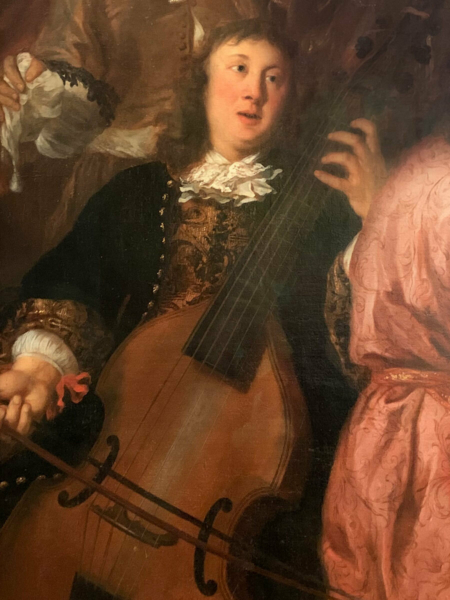Dieterich Buxtehude (1637–1707)
Buxtehudes Fertigkeiten an der Orgel bewegten Johann Sebastian Bach 1706 nach Lübeck zu reisen, um dessen Spiel zu erleben.
Buxtehude wirkte zunächst als Organist an der Marienkirche in Helsingor, bevor er 1668 die Nachfolge Franz Tunders an St. Marien in Lübeck antrat. Neben seinen Pflichten als Kirchenmusiker leitete er erfolgreich die Lübecker Stadtmusik, darunter die von Tunder begründete Tradition der Abendmusik, bei der er unter anderem seine Oratorien zur Aufführung brachte. Buxtehude schrieb Vokal- und Instrumentalkompositionen, darunter zahlreiche Orgelwerke (Präludien, Kanzonen, Choralbearbeitungen, Suiten). Seine Präludien überraschen durch den Wechsel von fugierten und improvisierten Abschnitten und einer Fülle von verschiedenen Stilelementen. Buxtehudes Fertigkeiten an der Orgel bewegten Johann Sebastian Bach 1706 nach Lübeck zu reisen, um dessen Spiel zu erleben. Innerhalb der Vokalwerke Buxtehudes stellt die Arie, in reiner Strophenform oder variiert, eine zentrale Gattung dar.









